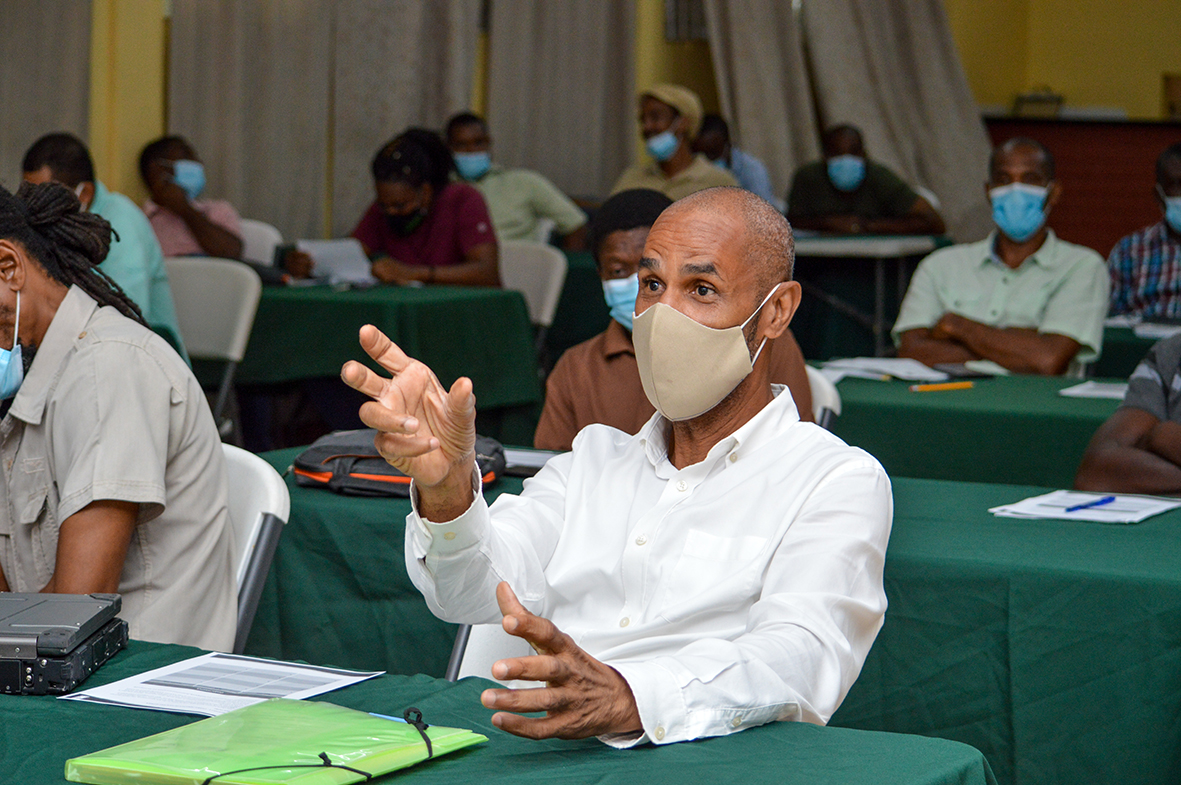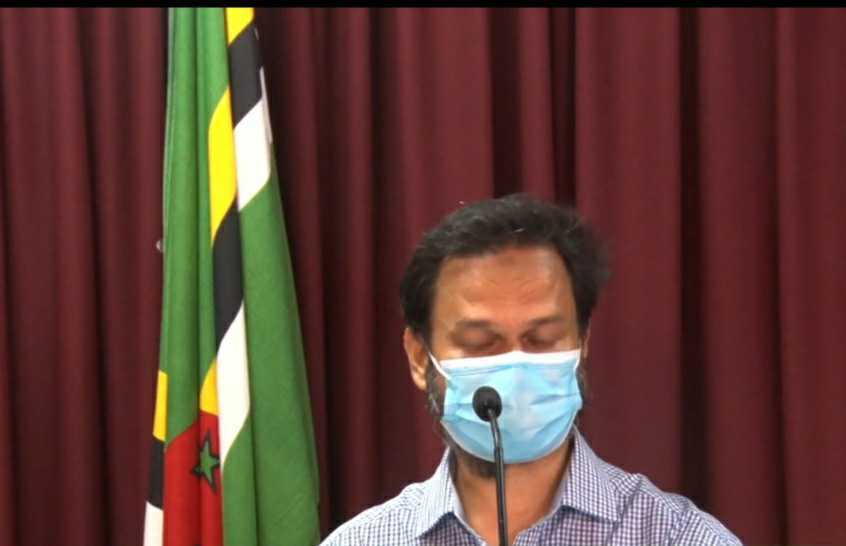
ROSEAU, DOMINICA 12 August – In partnership with the Government of Dominica, UNDP is implementing the “Strengthening the Disaster Management Capacity of Women in the Cooperative Republic of Guyana and The Commonwealth of Dominica” (GUY/DOM) project with funding from the Government of Japan. This 3-year project aims to enhance the capacity of famers, emphasising female farmers, in preparing and managing disasters, and improve their ability to contribute to national efforts for preparing and managing disasters within the agriculture sector. In Dominica, participant farmers are drawn from the three parishes of St. David, St. Paul and St. Patrick.
Today, in collaboration with the Division of Agriculture, the project launched a 2-hour introductory gender awareness workshop at the Public Service Union Building. Officers were encouraged to draw from their field experiences to explore the differences between sex and gender and how this understanding influenced their work with female and male farmers. The purpose is to improve the knowledge, attitudes and skills of officers in order to create gender-responsive programming, reduce bias and improve gender awareness.
In Dominica agriculture employs up to 40% of the labour force, and it is estimated that males comprise 85% of skilled agricultural and fishery workers, compared to 15% of females. Studies suggest that men’s and women’s unequal participation in agriculture is linked to gender-based access to land, credit, extension services and other productive assets, and gendered occupational segregation and differential wages. Men generally own larger parcels of land and are involved in larger scale agricultural production for export, and the rearing of large livestock. While women generally have access to smaller plots of land, are more involved in household food production, small scale vegetable production and the rearing of small livestock. The limited access to financing also undermines rural farmers, and in particular, women farmers and agricultural workers, from being able to expand into new markets and move beyond the bounds of the “working poor”, as such many of them have to engage in a range of other livelihood activities for support.
Therefore, while this project works with, and benefits both female and male farmers it employs a gender inclusive approach, that is, works to ensure women’s needs are met and not marginalised. For this approach to be realised the project focuses on the gender awareness of participants, partners and stakeholders alike. At the workshop, Sawana Fabien Project Co-ordinator highlighted the importance of this noting “to change the discourse on gender it is critical that all persons involved in supporting the mainstreaming are aware of the nuances that surround the topic. It definitely is not the exclusion of men however gender shapes each farmer’s experience in agriculture; with respect to affordability, access and use of services and products, and interaction with extension services. It is therefore incumbent that service providers are cognizant of the issues and agenda to begin effectively addressing the inequalities which make women more vulnerable during times of disaster”
Gender sensitivity training is only one of many interventions this project will implement. Other interventions include the Participatory Integrated Climate Services for Agriculture (PICSA) training to help farmers better utilize climate specific information to make informed decisions; the provision of two vehicles to support the work of the agriculture extension officers, development of a micro-finance facility, crop insurance






